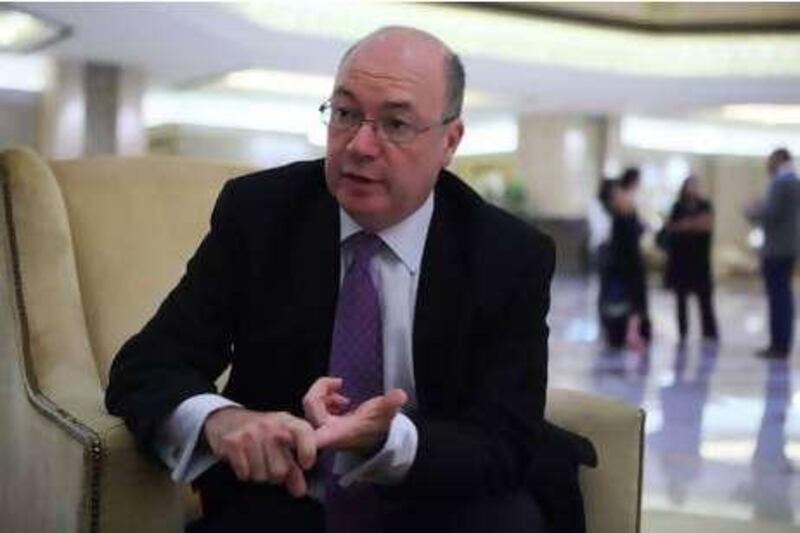A British minister has welcomed the news that a World Health Organisation-chartered plane has landed in Sana’a, bringing essential aid supplies to the people of Yemen.
Alistair Burt, the UK's minister of state for the Middle East and North Africa, said the aircraft carried more than 70 tons of life-saving medicines and surgical supplies.
“Unhindered access for such supplies is vital for addressing the humanitarian crisis in Yemen,” he tweeted on Friday.
Welcome news that a @WHOYemen plane has landed in #Sanaa, carrying more than 70 tons of essential medicines and surgical supplies. Unhindered access for such supplies is vital for addressing the humanitarian crisis in #Yemen.
— Rt Hon Alistair Burt (@AlistairBurtUK) December 22, 2017
The planeload, which arrived on Thursday, was the largest delivered by the WHO to Yemen this year, according to a statement on the organisation’s website.
The Saudi-led coalition fighting in Yemen eased restrictions at the main airport in the capital following a three-week freeze on operations after Iranian-backed Houthi rebels fired a missile at the Saudi capital Riyadh last month.
Another ballistic missile was fired by the Houthis towards Saudi Arabia on Tuesday, designed apparently to hit the Royal Palace. The missile was intercepted and destroyed by Saudi Arabia.
_______________
Read more:
[ US says Houthi missile attack on Riyadh 'bears hallmarks of Iran' ]
[ Yemen rebel missile shot down by Saudis, as UN say the weapons are likely Iranian ]
_______________
But despite the attempted attacks, the coalition announced on Wednesday that it would reopen the port of Hodeidah in Yemen to allow food, aid and commercial fuel to go through it.
British Prime Minister Theresa May welcomed the decision to reopen the port, saying: "This critical and commendable step has been made in the face of continued provocation and aggression from Houthi forces, and will help ensure the Yemeni people get the supplies and assistance they so desperately need."
The coalition, which includes the UAE, is fighting in support of Yemeni troops loyal to the internationally-recognised government of president Abdrabu Mansur Hadi.
Three years of war have killed more than 10,000 people and taken the country to the brink of famine.
Both Hodeidah and Sana’a are controlled by the Houthi rebels.
There are concerns that UN aid arriving at rebel-controlled ports and cities in Yemen, including medicine and food, is being sold on the black market or provided to militia on the battlefield rather than given to those who need it most.
Effective control of the Ministry of Planning and International Co-operation in the capital lies with the central Houthi authority rather than via the ministry officials, according to sources in Sanaa. It is a weakness that is increasingly widespread, The National has learned.
The shipment delivered to Sana’a on Thursday contains trauma kits sufficient to meet the needs of 2,000 patients requiring surgical care, as well as various types of rapid diagnostic tests and laboratory reagents to cover the urgent needs of central laboratories and blood banks.
Dr Nevio Zagaria, WHO Representative to Yemen, said it was a positive step but warned that the humanitarian crisis in Yemen is far from over.
“Together with our partners, we have made tremendous efforts to prevent the collapse of Yemen’s health system, but millions of people remain in dire need of critical health services,” he said.





